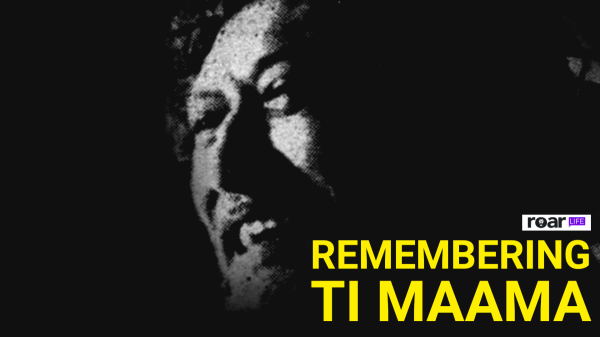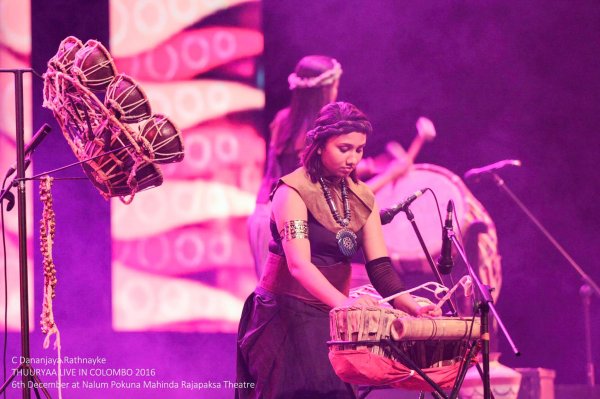
The internet was up in arms recently when an International band, brought down by a radio station, erred drastically by way of lip syncing. There were those who cried “I told you so!” given the band’s bad reputation, others who mourned the loss of a childhood favourite and some others were incensed at the quality of bands brought down to the island. This article isn’t about the above mentioned concert – a lot has been said about it, more than we care to repeat. Rather, we’re more interested in why we don’t have good bands or acts touring Sri Lanka.
Let’s face it: Sri Lanka isn’t exactly a concert hub. It can also be argued that until recently, say, the past 10 years, India wasn’t either. It was bands like Iron Maiden that really opened the floodgates for concerts in India. Where non-rock/metal acts are concerned, India has seen big names like Beyonce, Shakira, Akon, Ricky Martin touring the country. Where rock/metal acts are concerned, India has seen the likes of bands as big as Metallica, Iron Maiden, Megadeth, along with other bands like Opeth, Porcupine Tree, Iced Earth, Ihsahn, Leprous, Animals as Leaders, Rotting Christ, Anathema, Ne Obliviscaris, Belphegor, Napalm Death, Karnivool… just to name a few. Of course, India has the advantage of sheer size over an island as minute as ours but it isn’t always about size – Singapore is but a fraction of the size India and Sri Lanka but it is definitely known more as a concert hub than either country.
So what’s the deal? Why can’t we catch a break? It all begins with money…
The sponsorship battle
Speaking to Romesh*, who works for an event management company that has brought down acts like Olivia Newton John, it was understood that the biggest problem organisers face is sponsorship.
“Sponsorship in the last few years has dramatically dropped in every field,” he said, adding that “no one is willing to pay a large amount of money for a single event.”
Romesh isn’t alone in this belief. Speaking to Dilshard, concert organiser in collaboration with Fun Times, it was understood that “no corporate is interested in sponsoring unless they have proper visibility.”
Milinda, organiser for Skzin Colombo Open Air, explained that one of the biggest expenses when it comes to bringing down a band to Sri Lanka is airfare. “Getting airline sponsors is next to impossible now. Without sponsors, flying a band in is just too expensive,” he said.
Crowd Cover
Surely it’s not all about sponsors – what about money from ticket sales to cover the cost? Well, let’s take a look at the ticket pricing and attendance to get a better idea.
“We don’t have the money or the audience to get the money back,” Imran from Fun Times explained, adding that “we don’t have the audience to support big range acts.”
Imran broke it down further: Depending on the act, an average of 7,000 to 8,000 people may attend. The average ticket price would be around Rs. 7,000, which is roughly around USD 60. Even with tickets priced at Rs. 7,000, which is expensive in Sri Lankan terms, it is still less than the average price of a ticket for most concerts abroad.
Romesh added that, on average, tickets abroad are sold at USD 85 – 100 while, in Sri Lanka, that’s usually the amount a VIP ticket is sold at.
“We cannot sell tickets for Rs. 1000 or 2000 and still expect to cover the cost. How do you cover 50 million, based on ticket sales alone?” he asked. “Even when international promoters come to Sri Lanka to make money, they cannot.”
Dilshard added that only one in hundred concerts held in Sri Lanka make a profit – often, breaking even is difficult.

Now that’s a crowd – Image Source, RedKalinka
Red Tape and Taxes
Ravindu, one of the concert organisers of the recent metal gig Maelstrom, which brought down five International bands, pointed out that, as with everything in Sri Lanka, there’s the issue of getting permission – from the censor board to the police and if it is an open air concert, the Municipal council.
“We have to chase behind them if we want to get anything done. It gets easier over the years as you organise more concerts, but this is quite daunting in itself.”
Dilshard noted that taxes are based on the ticket prints – and not on the number of tickets sold.
“It is impossible to recover if you pay the taxes based on the ticket prints but don’t sell the number of tickets printed,” he explained.
Venues and Technical Riders
Say we do manage to get sponsors and the numbers. Where do we host them?
Romesh pointed out that Sri Lanka can host concerts that meet International standards – we have the equipment, which is, of course, expensive, and the expertise. “The problem is, do we have a venue to host large concerts? We have difficulty accommodating even 5,000 people, let alone 50,000,” he said.
And it just isn’t about the airfare, venue, sounds and lights. There’s also the matter of paying the bands or artistes, providing accommodation, catering to their technical riders and the often dreaded tour riders. Legend has it that some of the tour riders are pretty crazy (like no brown M&Ms for Van Halen and lots of bacon for Metallica) – the bigger the artiste/band, the crazier their demands. And let’s face it, if we can’t even pay for the venue…

One person’s dressing room, someone else’s definition of heaven – Image Source, Christopher Catania
How did India do it, again?
Turns out, even India doesn’t have it easy. Speaking to Salman, organiser of Bangalore Open Air, it was understood that India faces similar pressures – except, perhaps, where the crowds are concerned.
“It all depends on what’s in demand. Artistes like David Guetta are more in demand and getting down DJs costs less than getting down a band. Often the costs involved are not proportionate to the investment,” he said.
On some accounts, India has it even worse. “There’s so much red tape and corruption here. The system is messed up. Even with influence, you have to pay whatever they ask you. Permission for gigs here is not that difficult but the bureaucracy is killing,” Salman explained.
Does this mean we’re doomed?
Perhaps, or perhaps not. Enrique’s “Love and Sex” tour might be good news for us, but it will certainly take a long time before the industry picks up – or as Dilshard put it, Sri Lanka is still in its infancy.
“We need to get a world class band to perform here first – it will help our tourism and hospitality industry immensely if we take that first step. But first, we need the money, the sponsors and a bit of backing from the government to jumpstart things.”
And until then? Until then, it’s about supporting the little endeavours our concert organisers make and maybe taking that trip to India or Singapore if the waiting gets tough.
*name changed upon request








